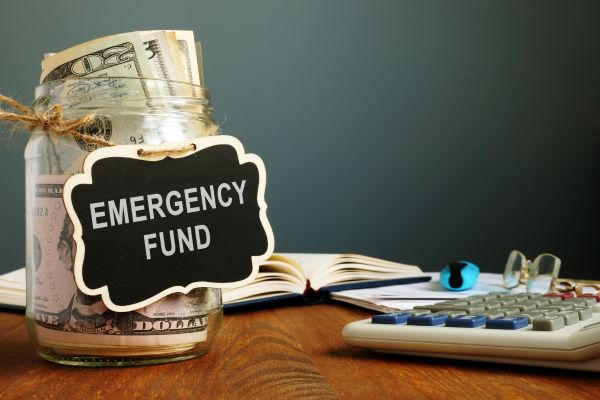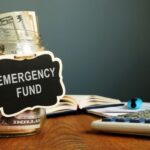Financial stability often hinges on the ability to manage unexpected expenses. Whether it’s a medical emergency, a job loss, or a sudden car repair, these unforeseen events can derail even the most carefully constructed budgets. That’s where emergency fund planning becomes not just important, but essential. The concept of building an emergency fund might sound simple, but planning how much you truly need—and ensuring you stick to the plan—is a more nuanced challenge.
Why Emergency Fund Planning Matters More Than Ever
In a world filled with financial uncertainties, emergency fund planning provides a safety net that can protect your livelihood and peace of mind. Without this buffer, individuals often find themselves relying on credit cards or high-interest loans to cover emergency expenses, which can quickly spiral into long-term debt. An emergency fund, on the other hand, allows you to navigate life’s surprises without compromising your financial goals.
The importance of emergency fund planning has only grown in recent years. With global economic fluctuations, rising inflation, and shifting job markets, having a dedicated reserve is no longer optional—it’s a financial necessity. Planning ahead not only cushions the impact of emergencies but also empowers you to make sound decisions without the pressure of immediate financial stress.
Determining How Much Is Enough
One of the most common questions in emergency fund planning is, “How much should I save?” While traditional advice often suggests saving three to six months’ worth of living expenses, the answer is not one-size-fits-all. Your ideal emergency fund depends on a variety of personal factors, including your lifestyle, job stability, number of dependents, and monthly obligations.
For someone with a steady job and minimal fixed expenses, a smaller emergency fund may suffice. However, freelancers or those with variable income might need a larger cushion to weather periods of inconsistent earnings. It’s crucial to analyze your unique situation carefully. Consider how long it might take you to find a new job if you lost your current one, or how much you’d need to cover essential bills if an emergency struck tomorrow. Emergency fund planning requires this kind of personal assessment to be truly effective.
Where to Keep Your Emergency Fund
Another vital aspect of emergency fund planning is deciding where to store the money. While it might be tempting to invest your emergency savings for higher returns, doing so can expose the funds to market risks and delays in accessibility. The primary goal of an emergency fund is liquidity—being able to access your money quickly and without penalty.
A high-yield savings account is often a suitable choice. It offers both security and moderate interest, allowing your money to grow slightly while remaining readily available. Keeping your emergency fund separate from your day-to-day checking account also helps reduce the temptation to dip into it for non-emergencies. The structure of emergency fund planning isn’t just about saving the money—it’s about creating a system that supports discipline and access when it matters most.
The Psychological Benefits of Emergency Fund Planning
While the financial advantages of emergency fund planning are clear, the psychological benefits are equally significant. Knowing you have a dedicated reserve in place can provide peace of mind and reduce anxiety related to money. It allows you to handle emergencies from a position of strength rather than desperation.
This peace of mind can also lead to improved decision-making in other areas of your financial life. When you’re not constantly worried about what might go wrong, you can focus more confidently on long-term goals like investing, purchasing a home, or planning for retirement. Emergency fund planning creates a foundation of security that enhances every other aspect of financial wellness.
Maintaining and Growing Your Fund
Establishing an emergency fund is only the beginning. Like any financial strategy, emergency fund planning requires ongoing maintenance and periodic review. As your income, expenses, and lifestyle change, your emergency fund should evolve accordingly. What was sufficient two years ago may not cover your needs today.
You should revisit your emergency fund at least once a year. Evaluate whether the current balance reflects your true cost of living and whether you’d be prepared for a large, unexpected expense. If you’ve dipped into your fund for a recent emergency, prioritize rebuilding it before allocating money to other financial goals. Consistency is the key to long-term success in emergency fund planning.
It’s also worth considering how you can gradually grow your fund over time without straining your budget. Even modest monthly contributions can add up. By treating your emergency fund as a non-negotiable part of your budget—similar to a bill—you reinforce the importance of this financial safety net.
Overcoming Common Challenges
One of the most frequent barriers to effective emergency fund planning is the belief that there’s no money left to save. While this concern is valid, it often stems from a lack of visibility into spending habits. A detailed budget can reveal opportunities to cut back on discretionary spending and redirect those funds into your emergency reserve.
Another challenge is competing financial priorities. It can be difficult to justify setting aside money for something that might never happen when you’re focused on paying off debt or saving for a large purchase. However, emergency fund planning should be viewed as complementary to these goals—not in competition with them. Having an emergency fund actually supports debt reduction and savings by preventing new financial burdens from arising when the unexpected occurs.
Emergency Fund Planning in Uncertain Times
Economic instability and personal uncertainty are facts of life, and they can arise without warning. Whether it’s a global recession or a personal health crisis, these events often serve as stark reminders of why emergency fund planning is so vital. They highlight the fragility of financial well-being when there’s no buffer in place.
When times are tough, your emergency fund acts as a lifeline. It can help you avoid making rash decisions like selling investments at a loss or taking on predatory loans. In times of stability, your fund serves as a quiet reassurance that you’re prepared for whatever comes next.
A Foundation for Financial Freedom
Ultimately, emergency fund planning is not just about preparing for emergencies—it’s about creating the freedom to live your life with confidence. When you have a well-structured emergency fund, you’re better equipped to handle setbacks, take calculated risks, and pursue your goals without fear.
Financial freedom begins with security, and that security is rooted in preparation. Emergency fund planning provides that foundation. It’s not glamorous, and it may not offer immediate gratification, but it is one of the most powerful financial strategies available. By committing to this form of planning, you take control of your future in a way that few other financial tools can match.
Conclusion: Be Proactive, Not Reactive
In conclusion, emergency fund planning is a cornerstone of smart money management. It protects you from financial shocks, offers psychological reassurance, and enhances your overall financial strategy. The process begins with a clear understanding of your personal needs, continues with disciplined saving and smart storage, and evolves with your changing life circumstances.
Being prepared isn’t just a wise move—it’s a transformative one. As you build and maintain your emergency fund, you lay the groundwork for a more resilient, confident, and financially secure life. There’s no better time to start emergency fund planning than now, because peace of mind is one of the greatest investments you’ll ever make.







